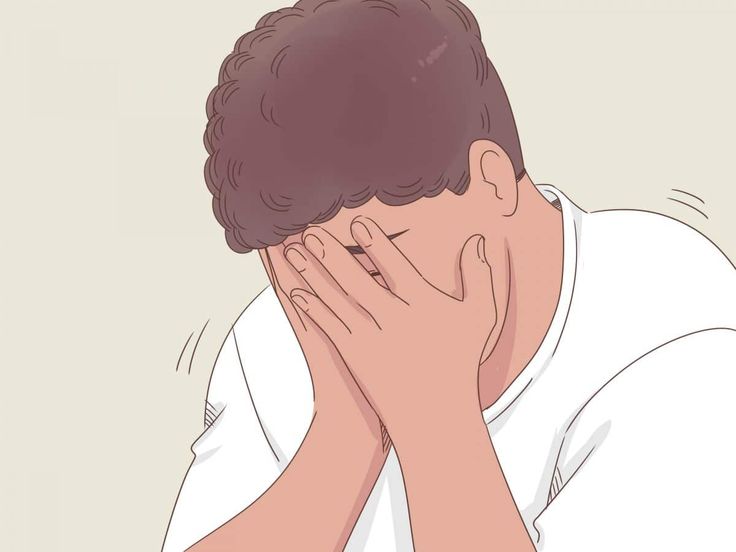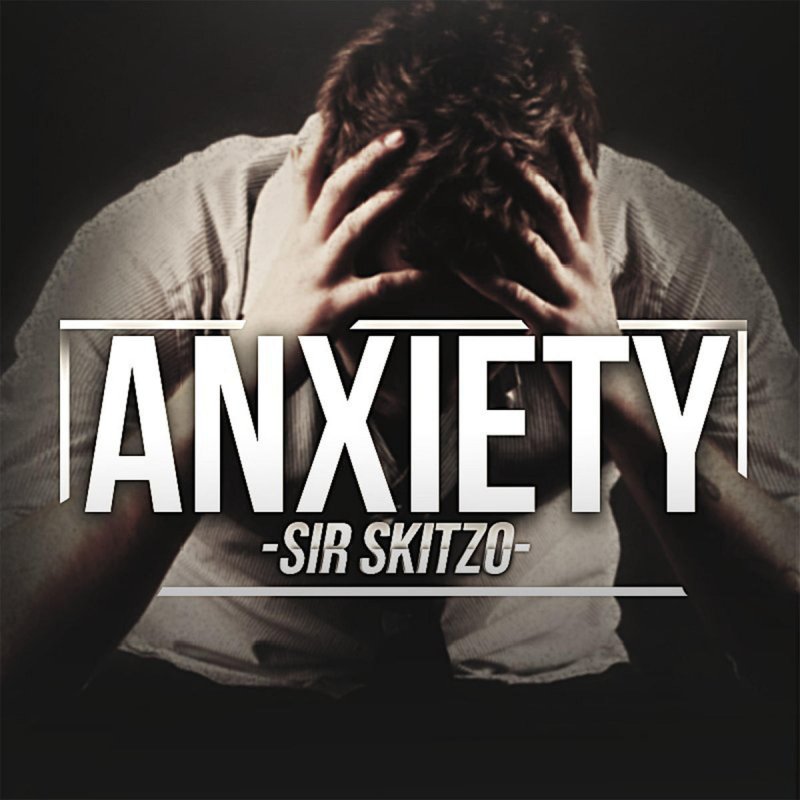Crying all the time for no reason
Getting support, causes, and how to stop crying
For people of all ages, crying is a natural, important way to express emotions — even when the reason is unclear.
Everyone cries now and again, and a person may cry more on a given day for no clear reason.
If crying becomes more frequent or uncontrollable and there is no apparent cause, consider consulting a medical professional. A mental health condition, hormonal imbalance, or neurological condition may be responsible.
This article explores what can cause frequent and unexplained crying. We also give advice about when and where to receive help.
The factors below can cause a person to cry more than usual or without an apparent reason.
Menstruation
Hormonal changes that occur around the time of menstruation can cause emotional and physical symptoms. Doctors refer to these symptoms collectively as premenstrual syndrome (PMS).
A 2013 study reports that as many as 75% of women of reproductive age experience PMS.
Crying spells are one symptom of PMS. Some related symptoms that may occur shortly before or during a period include:
- depression or feelings of sadness
- tension or anxiety
- irritability or hostile behavior
- mood changes
Pregnancy
The body goes through many hormonal changes during and after pregnancy. These changes can influence a person’s mood, causing them to cry more than usual.
Most people experience feelings of sadness and emptiness within a few days of giving birth. If these feelings last for more than 2 weeks, they can indicate postpartum depression.
Other symptoms of postpartum depression can include:
- a persistent low mood
- a lack of motivation or energy
- sleep and memory problems
- a lack of interest in the baby
- a lack of connection with the baby
- feelings of hopelessness and guilt
Burnout
Burnout describes extreme mental and physical exhaustion that a person may experience when exposed to excessive, prolonged stress.
It can affect a person’s ability to regulate their negative emotions, which may lead to emotional outbursts and crying.
Some other features of burnout include:
- anxiety
- depression
- anger
- isolation
- insomnia
- fatigue
- a lack of concentration
- forgetfulness
- a loss of appetite
- persistent chest pains
- shortness of breath
- heart palpitations
- dizziness
- headaches
- gastrointestinal problems
Anxiety
Anxiety is a mental health condition that involves increased levels of fear, worry, or panic. It affects around 40 million adults in the United States each year.
Anxiety can make people feel vulnerable and out of control — feelings that can cause a person to cry. If this happens, the reasons may not be clear.
Some other symptoms of anxiety include:
- nervousness
- irritability
- feelings of impending danger or doom
- difficulty concentrating
- an increased heart rate
- rapid breathing
- increased sweating
- trembling
- feeling weak or tired
- difficulty sleeping
- gastrointestinal problems
Depression
Depression is a mental health condition characterized by a low mood that lasts weeks, months, or years.
A person with depression may cry more readily or frequently than a person without it. Some other symptoms can include:
- anger and irritability
- feelings of guilt and hopelessness
- feelings of numbness or emptiness
- low confidence and self-esteem
- a lack of interest or pleasure in past hobbies or interests
- poor concentration
- sleep problems
- changes in appetite
- suicidal thoughts
Grief
Grief is a complex process that occurs when someone loses someone or something important to them. The process is different for everyone, but crying is often part of it.
Some people experience delayed or prolonged grief that does not improve over time. Experts refer to this as “complicated” or “unresolved” grief. It can cause a person to cry suddenly or without warning.
Other symptoms of complicated or unresolved grief include:
- an inability to accept the loss
- emotional numbness
- intense emotional pain
- feelings of personal blame or guilt
- feeling isolated or detached from others
- a loss of identity or purpose
- a feeling that life is meaningless or empty
- suicidal thoughts
Suicide prevention
If you know someone at immediate risk of self-harm, suicide, or hurting another person:
- Ask the tough question: “Are you considering suicide?”
- Listen to the person without judgment.

- Call 911 or the local emergency number, or text TALK to 741741 to communicate with a trained crisis counselor.
- Stay with the person until professional help arrives.
- Try to remove any weapons, medications, or other potentially harmful objects.
If you or someone you know is having thoughts of suicide, a prevention hotline can help. The 988 Suicide and Crisis Lifeline is available 24 hours a day at 988. During a crisis, people who are hard of hearing can use their preferred relay service or dial 711 then 988.
Click here for more links and local resources.
Pseudobulbar affect
Pseudobulbar affect (PBA) is a neurological condition that can increase a person’s propensity to cry. Other names for this condition include:
- emotional lability
- reflex crying
- involuntary emotional expression disorder
PBA occurs because of a disconnect between the frontal lobes of the brain and the cerebellum and brain stem. The frontal lobes control emotions, while the cerebellum and brain stem help regulate reflexes.
A disconnect between these areas can lead to emotional dysregulation, which may lead to uncontrollable crying, anger, or laughter.
PBA can occur as a result of:
- a stroke
- dementia
- amyotrophic lateral sclerosis, often called ALS
- multiple sclerosis, often called MS
- Parkinson’s disease
- Wilson’s disease
- brain tumors
- a traumatic brain injury
Cultural factors
Social and cultural factors may also influence how much people cry. A person who is part of a culture that is less accepting of crying and other forms of emotional expression may try to avoid crying to prevent shame or embarrassment.
An older study, from 2011, investigated trends in crying among adults in 37 countries. It found that people living in affluent countries with more extroverted cultures cry more often.
Crying is a perfectly normal way to express emotion. But someone who often cries for no apparent reason may feel worried about crying at inappropriate or inconvenient times.
The strategies below might help a person stop crying:
- pressing the tongue to the roof of the mouth
- relaxing the facial muscles
- pinching the skin between the thumb and forefinger
A person might also try a deep breathing exercise, which is a common way to calm and control emotions. It involves breathing in through the nose for several seconds and pulling the air down to expand the belly, then releasing the air through the mouth until the belly deflates.
If a mental health issue is responsible for a person’s frequent crying, they may benefit from the resources and support that the following organizations offer:
- the Anxiety and Depression Association of America
- the National Institute of Mental Health
- Active Minds
- Mental Health America
Also, local mental health organizations and support groups are often available. A doctor can provide guidance about accessing these resources.
A person should see a doctor if they experience crying that:
- is frequent, uncontrollable, and occurs for no apparent reason
- interferes with the ability to do everyday things
- is accompanied by other physical, emotional, or psychological symptoms
If the doctor believes that the person may have an underlying mental health issue, they may refer the person to a psychiatrist or psychotherapist. These mental health professionals can help people address and resolve the underlying issues and develop appropriate coping strategies.
These mental health professionals can help people address and resolve the underlying issues and develop appropriate coping strategies.
If the doctor suspects that there is a physical health issue, they can provide a diagnosis and treatment.
Crying is a normal emotional response to many different factors. However, frequent, uncontrollable, or unexplained crying can be emotionally and physically exhausting and can greatly affect daily life.
This type of crying may result from a mental health condition, such as burnout, anxiety, or depression. It might instead stem from hormonal imbalances or neurological conditions.
If frequent crying for no apparent reason is causing concern, see a doctor for a diagnosis or a referral to a mental health professional.
Meanwhile, many organizations provide resources and support, and a doctor can help a person access those that are most appropriate.
6 Things Most People Don't Know About Crying For No Reason
Depression
- Posted by tavy87
23 Oct
Whether you cry from watching the scenes from The Notebook or cry after stubbing your toe in the middle of the night on a chair you didn’t see…. everybody cries. It can be in the privacy of your own home or share with your best friend, we all do it. And yes, we all sometimes cry for no reason and it can be normal. It probably is more alarming when you think “why am I crying for no reason” or we think “kids are crying for no reason,” but surprise, it is not for no reason. There is a reason. You just may not be aware of what it is.
everybody cries. It can be in the privacy of your own home or share with your best friend, we all do it. And yes, we all sometimes cry for no reason and it can be normal. It probably is more alarming when you think “why am I crying for no reason” or we think “kids are crying for no reason,” but surprise, it is not for no reason. There is a reason. You just may not be aware of what it is.
Children may not be able to articulate what is going on, so to adults, it looks like kids are crying for no reason as well.
1. Most people are overwhelmed and don’t even realize it.You may be heading home from work sitting in traffic, and all of a sudden tears begin to fall. At that moment you probably are thinking, what is wrong with me? Why am I crying? I’m not even sad! If you are unaware of the amount of stress you are under, then stress can find a way to express itself, whether you are expecting it to or not. Stress lives in the body and crying is one form of release that stress finds. So pay attention to the amount of stress you’re under, it may be contributing to your experience of crying for no reason.
So pay attention to the amount of stress you’re under, it may be contributing to your experience of crying for no reason.
2. You don’t have to be clinically diagnosed with depression to experience symptoms of depression.
While it is a common mood disorder, many of the symptoms are common for people to experience as well. Some symptoms of depression are persistent sadness, empty mood, or hopelessness. Amongst other symptoms, these feelings tend to make people cry. The conscious connection may not be made so people assume they are crying for no reason.
3. Similar to stress, many people experience anxiety.Whether you have an anxiety disorder or struggle with anxiety in general, anxiety can cause you to cry. Symptoms of anxiety can include having a sense of impending danger, feeling nervous, or having difficulty controlling worry. The act of crying can be a release of the build-up of previously explained symptoms. Remember, if you are not active in coping with your anxiety, it can appear in unexpected physical ways, like in the form of migraines or crying.
Premenstrual syndrome is the collective experience of symptoms that women have one to two weeks before their menstrual cycle begins. Some symptoms of the premenstrual syndrome include headaches, bloating, and crying spells. If you are not tracking your menstrual cycle and are unaware it is beginning, you may not realize you are experiencing premenstrual syndrome.
5. Processing the death of someone you love or cared for does not have a deadline.You may assume that because the person died a year ago, or 6 months ago that you would not feel sudden strong emotions related to that person you lost. You may think that you have learned to accept the loss and going about your daily life. But like many people, you may still be grieving the loss of a loved one and not realize it. Something as simple as a smell that brings up a memory of a loved one could cause us to cry all of a sudden.
Not many have. Pseudobulbar affect (PBA) is a condition that’s characterized by episodes of sudden uncontrollable and inappropriate laughing or crying. Pseudobulbar effect typically occurs in people with certain neurological conditions or injuries, which might affect the way the brain controls emotions. People that have pseudobulbar affect do have other emotions but express emotions in an inappropriate and magnified manner, consequently disrupting their life. Uncontrollable crying can look like crying for no reason.
So keep in mind, you may not be crying for no reason. Your tears mean something, you just have to figure out what they mean. If you need to talk to someone, see a professional therapist or psychiatrist in your insurance network who can help you feel better and increase your quality of life.
Clarity Clinic
At Clarity Clinic, we have highly trained staff who specialize in psychotherapy and psychiatry services. To learn more about how we can support your mental health, call Clarity Clinic on (312) 815-9660 or schedule an appointment today.
To learn more about how we can support your mental health, call Clarity Clinic on (312) 815-9660 or schedule an appointment today.
Schedule Now
Why you constantly want to cry for no reason Sometimes this is a sign of illness.
Share
0What is crying
In the corners of the eyes are small glands that produce a clear liquid with dissolved proteins and salts, necessary for nourishing, moisturizing and cleansing the cornea. These are tears, they are reflexively released under the influence of signals from the autonomic nervous system. But sometimes emotions get in the way.
Humans are the only The neurobiology of human crying creatures on earth that are capable of crying under the influence of feelings. Tears can come from a touching movie, music, important life events, or out of sympathy. Crying causes both positive and negative emotions.
Scientists are still investigating The neurobiology of human crying the mental and neural processes that underlie emotional tears. It is believed that crying is associated with temperament and upbringing, personality traits and gender, as well as the release of the neurotransmitter serotonin and brain hormones: oxytocin, vasopressin and prolactin. These substances are involved in the formation of attachment and social behavior. Therefore, separation, the loss of a loved one leads to sadness and tears.
It is believed that crying is associated with temperament and upbringing, personality traits and gender, as well as the release of the neurotransmitter serotonin and brain hormones: oxytocin, vasopressin and prolactin. These substances are involved in the formation of attachment and social behavior. Therefore, separation, the loss of a loved one leads to sadness and tears.
Also, scientists have found that women cry more often than men. This is associated with the action of The neurobiology of human crying testosterone, which inhibits emotional reactions.
Why you always want to cry
Children cry often and are not shy, this is their way to attract attention, demand a coveted toy or influence the decision of their parents. Adults rarely allow themselves to cry in the presence of other people, but sometimes pain, resentment, empathy are expressed in this way Sympathy Crying: Insights from Infrared Thermal Imaging on a Female Sample, fatigue, stress, or vice versa, joy.
If crying does not appear daily and for nothing, you can ignore it. But imagine a situation where tears are shed due to a broken nail, a small remark from an outsider, or for no apparent reason at all. Perhaps the problem is a lack of vitamin Vitamin B‑12 and depression: Are they related? B12, fatigue. But sometimes a constant desire to cry is the influence of various pathological factors that are difficult to eliminate without a doctor.
Psychological factors
Instability of the nervous system appears in people who are in a state of nervous tension for a long time. At the same time, the hormones adrenaline, norepinephrine and cortisol are released, which deplete the body. Crying helps Sympathy Crying: Insights from Infrared Thermal Imaging on a Female Sample to reduce the release of these substances and reduce the impact of stress on the psyche.
Sometimes the desire to constantly cry arises due to a violation of Medical psychology of adaptation to the action of various factors. For example, psychological pressure at work, lack of money or a large number of duties to loved ones exhaust the nervous system, irritation and fatigue accumulate. Therefore, for any little reason, tears appear. Such a disorder can last up to 2-3 months and does not always go away without the help of a psychologist.
For example, psychological pressure at work, lack of money or a large number of duties to loved ones exhaust the nervous system, irritation and fatigue accumulate. Therefore, for any little reason, tears appear. Such a disorder can last up to 2-3 months and does not always go away without the help of a psychologist.
Psychiatric disorders
A constant desire to cry is associated with mental disorders. Often they have erased symptoms, so it is impossible to make a diagnosis without consulting a psychiatrist. After examination, the doctor can find one of the following diseases:
- Depression Depression (major depressive disorder). Patients are in an emotionally depressed state, but sadness and tearfulness can be replaced by aggression, irritability. A person loses all interest in life, favorite hobbies, his mental activity slows down, memory decreases. In severe cases, thoughts of suicide or attempts to carry it out appear.
- Post-traumatic stress disorder.
 The condition occurs Post-traumatic stress disorder (PTSD) after a traumatic event, but usually not immediately, but after a few weeks. A person is tormented by nightmares, unpleasant memories, sometimes there are thoughts about his own worthlessness, a feeling of doom. Positive emotions fade. Sometimes this disorder can also lead to suicide.
The condition occurs Post-traumatic stress disorder (PTSD) after a traumatic event, but usually not immediately, but after a few weeks. A person is tormented by nightmares, unpleasant memories, sometimes there are thoughts about his own worthlessness, a feeling of doom. Positive emotions fade. Sometimes this disorder can also lead to suicide. - Panic attacks and panic disorder. This is a mental illness in which a sudden attack of fear appears, a person loses control over his behavior, feels a loud beating of the heart, feels shortness of breath, trembling, and abdominal cramps. Many of them start crying.
- Dementia Dementia. The disease often occurs in old age and leads to a decrease in memory, attention, thinking. A person's emotions are erased, but there is a desire to constantly cry.
Changes in internal organs
Frequent urge to shed tears may be due to hormonal changes or disease and may be accompanied by additional symptoms. For example, in women, tearfulness is associated with premenstrual Premenstrual syndrome (PMS) syndrome, menopause Climacteric syndrome: the current state of the issue or pregnancy Psycho-emotional disorders during pregnancy. The need for their correction. These conditions are accompanied by fluctuations in the level of sex hormones, so they can lead to emotional instability.
For example, in women, tearfulness is associated with premenstrual Premenstrual syndrome (PMS) syndrome, menopause Climacteric syndrome: the current state of the issue or pregnancy Psycho-emotional disorders during pregnancy. The need for their correction. These conditions are accompanied by fluctuations in the level of sex hormones, so they can lead to emotional instability.
Doctors believe that constant crying also causes endocrine diseases. For example, in hyperthyroidism Hyperthyroidism (overactive thyroid), Addison’s disease Addison’s disease, diabetes mellitus Depression and diabetes as comorbid diseases, there is a tendency to depression and mood swings.
But more often tears without a reason provoke brain pathologies. Sometimes a person has uncontrollable crying, which can be replaced by laughter. This is one of the signs of pseudobulbar Pseudobulbar affect affect. Some consider it a mental disorder, but in fact it is caused by diseases of the brain:
- stroke;
- multiple sclerosis;
- consequences of head trauma;
- Alzheimer's disease;
- Parkinson's disease.

How to stop crying for no reason
Some try to cope with bad emotions on their own, try to suppress crying or distract themselves from provoking factors. You can practice breathing exercises or try a relaxation technique.
If tears continue to appear in the eyes for no reason, a therapist should be consulted. He will prescribe an examination, if necessary, send him to a psychotherapist or psychiatrist.
Treatment will depend on the cause of the crying. Cognitive behavioral therapy helps with psychological problems, which teaches you to change your thinking and perceive negative situations correctly.
If your crying is due to hormonal, mental or neurological problems, your doctor may prescribe medication.
Read also 👩⚕️🩺💊
- 13 reasons why you constantly want to eat
- How to figure out why you can't "just calm down"
- 10 surprising reasons why you're itchy
- Why you always want to drink
- 12 dangerous and harmless reasons why you constantly want to sleep
Why you want to cry for no reason: how to stop crying over trifles
“I cry all the time, whether there is a reason or not!”. What to do with tears over trifles if they interfere with a normal life? And why do people cry for no reason? Excessive emotionality from childhood? Not at all.
What to do with tears over trifles if they interfere with a normal life? And why do people cry for no reason? Excessive emotionality from childhood? Not at all.
The modern rhythm of life is accompanied by regular stress, haste and tension. Surely, each of us, against the background of overwork, was overtaken by sudden causeless tears. Let's try to figure out what are the causes and consequences of this phenomenon. And consider simple practical ways to deal with the problem.
Why do people cry for no reason?
Everyone probably thought about where crying without a reason comes from, being in a difficult emotional situation. Even when outwardly he is fine. You probably had to be a witness or a protagonist of such a picture. We remember that tears are an expression of emotions accumulated in our body. But what exactly can provoke tears for no reason?
Reasons why you want to cry for no reason
-
Accumulated neuroses and stresses.

Stress overtakes us at work, in transport, on the street, at home. That the most amazing irritation and nervousness often occur on vacation, where a person does not expect it at all. It is almost impossible to predict and prevent such a phenomenon. Negative emotions absorb us, accumulate in the body. They negatively affect our nervous system, shaking it.
Without realizing it, we are "exhausted" from overwork, stress. And tears for no reason become the body's reaction to emotional overload, with which our exhausted nervous system is not able to cope on its own.
-
Severe stress due to long-standing events.
The human brain is able to absorb and remember the brightest moments. We are talking about positive and negative phenomena. Even if it seems to you that everything is long gone and forgotten, memories are stored at the level of the subconscious, which is sometimes able to behave unpredictably. Why do they cry for no reason at the most unpredictable moments when everything seems to be fine? Try to look for the cause of sudden tears in the past - you may not have been able to let go of some events.
 Maybe it's a reaction to a memory. Your brain has found something "painful" in a particular situation, movie, music track. And he reacted with unforeseen and causeless tears.
Maybe it's a reaction to a memory. Your brain has found something "painful" in a particular situation, movie, music track. And he reacted with unforeseen and causeless tears. -
Failures in the body.
Causeless tears can also occur against the background of hormonal disruptions. Most often they "attack" the female half of society. An excess or lack of certain substances in the body is reflected in the emotional state of a person. Along with the “tearful” reaction, the body produces other unforeseen consequences - weight loss or gain, drowsiness or insomnia, poor or increased appetite.
If the tears that come out on their own are not accompanied by an emotional load and a violation of the emotional state, contact an ophthalmologist. It happens that you don’t want to cry, but tears come out involuntarily. It can also be caused by a clogged or cold eye canal. However, there may be discomfort in the corners of the eyes.
“I am constantly crying for no reason, what should I do about it?”
If, in addition to unreasonable tears, you begin to notice other malfunctions in the body, you should definitely make an appointment with a doctor. Perhaps you are missing some substance in the body and it will not hurt to take tests for thyroid hormones. In any case, a specialist will examine you, help identify and eliminate the root of the problem. If necessary, he will refer you to an appointment with a psychotherapist, on your own to go to which you did not consider it necessary.
Perhaps you are missing some substance in the body and it will not hurt to take tests for thyroid hormones. In any case, a specialist will examine you, help identify and eliminate the root of the problem. If necessary, he will refer you to an appointment with a psychotherapist, on your own to go to which you did not consider it necessary.
But if the causeless tears are caused by chronic fatigue, rest is indicated for you. Based on the situation, choose the best course of action for you. Evening walks before going to bed and relaxing baths will help to cope with irritability. Or maybe you need a day off for a good sleep? And if you haven’t gone anywhere for a long time, plan a picnic or fishing trip for the weekend. Rest helps to cope with the consequences of chronic neurosis and normalize the nervous system.
How to respond to causeless crying?
Where is the best place to cry?
Even strong people have the right to tears and there is no need to be afraid of it.
If you really want to cry, it's better to cry in the psychologist's office, at the same time together you will find the real reason and be able to solve your problems.
Suppression of feelings and emotions is much more dangerous.
Talk to a psychologist
“I often cry for no reason. What to do when tears appear at the most inopportune moment - at work, on the street or in public places?
First of all, do not be afraid of such a reaction of the body. If your emotionality manifested itself suddenly, even attracted the attention of others - this is not the worst thing in life. You can handle everything. If for some reason you want to cry for no reason, there is a reason. She must be sought. But first of all, you need to calm down. Try the following techniques if you experience sudden tears:
-
Conversation.
Moral support for a loved one is a great way to cope with emotions, calm down and take a fresh look at what is happening.
 Sometimes a conversation with a stranger saves. You are not afraid of the reaction of loved ones, you simply express what worries you. Against the background of emotional unloading, sudden tears also pass.
Sometimes a conversation with a stranger saves. You are not afraid of the reaction of loved ones, you simply express what worries you. Against the background of emotional unloading, sudden tears also pass. -
Self-monitoring.
If you often overtake causeless tears, you will have to learn to control them. This is not without initial effort. Do not try to drive bad thoughts away from yourself - there is little sense from this. It is better to consciously give yourself the installation to calm down. Take a deep breath several times, follow your breath, focus on it, get up, drink water, try to switch your attention to any object around - examine and tell yourself about it: what color it is, why it is here, etc. Your task is to switch your thoughts to something that does not cause you an obvious emotional reaction. Try to achieve complete muscle relaxation and redirect the flow of thoughts, this will help you calm down.
-
Medical assistance.

Any pharmacological drug must be taken as prescribed by a doctor. But you can also purchase a complex of vitamins on your own - despite the popular belief that causeless tears need to be “treated”, it does not hurt to do a simple prevention of them. Vitamins and mild sedatives are good if you often feel anxious or upset. No need to shy away from medical support, your nervous system needs the same care as other body systems.
-
Psychoanalyst help.
No need to be afraid of psychotherapists. Do you feel that it has become difficult for you to cope with the surging emotions? Or maybe causeless tears began to “attack” you very often? Book an appointment with a specialist. Your doctor can help you determine the cause of your increased emotionality. In the course of a simple conversation, you yourself will open your irritant to him. It is easier for a psychoanalyst to understand what provokes your condition. Unreasonable tears can occur against the background of regular nagging by the boss, inattention on the part of the husband or misunderstanding of children, or they can hide much more serious psychological disorders that are almost impossible to cope with on their own.















